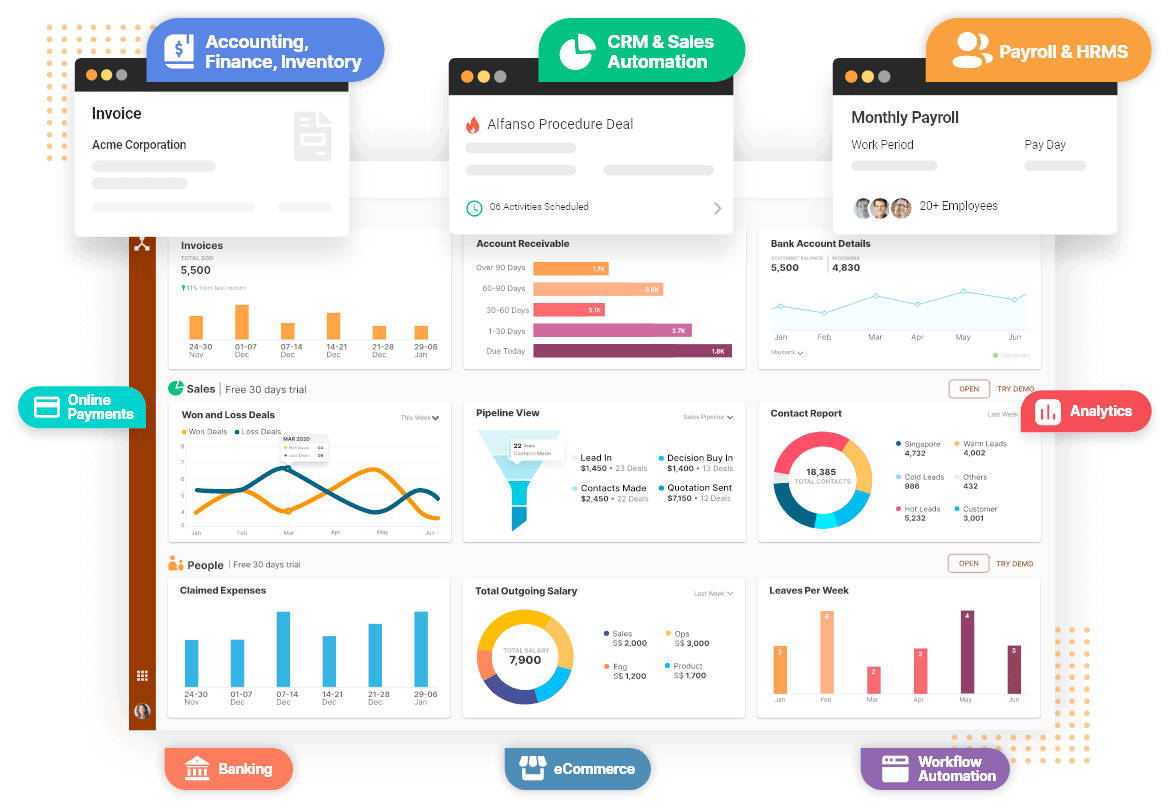Business loans are a great way to get the money you need in a hurry. There is no doubt that the word "finance" has several meanings and can be interpreted in many ways. It all depends on your viewpoint or approach. In most cases, finance encompasses how capital is gathered, preserved, and allocated among different uses.

In today's business climate, obtaining a business loan from a bank or any other form of financial institution is often fraught with difficulty, requiring mountains of paperwork, countless forms, and hours of turnaround time. Some new businesses have nearly given up entirely before reaching the point of loan approval.
Finance is a crucial area of business that ensures the smooth running of an organisation. Proper financial management is key to providing all the support necessary to help your business grow. Whether it is funding for equipment, new hires, or inventory, your company's financial success is fundamental to its growth.
In this guide, we will review the process of getting a business loan for new and existing businesses in the UK. We'll also provide you with a checklist of everything you need to gather for the application. By the time you've finished reading, you'll know all about how to apply for a business loan in the United Kingdom.
What are the Types of Business Loans in the UK?
There are different types of business loans available in the UK. Short-term business loans are usually for small start-up businesses and can be taken out for one year to two years. Long-term business loans run for three to seven years and are generally used to invest in a new property or buy equipment.
Secured business loans are the third option, which means you put up your property as security if you can't pay off the loan. The interest rates are usually lower than the short term and long-term business loans. If you are looking for a larger loan for buying new premises or investing in your current property, you need a longer-term business loan.
For this type of loan, the investment is considered relatively high and will be paid back over an extended period of time. It is also helpful if you need a large amount of money but has a limited borrowing history.
Short-term business loans are small and have low-interest rates. They are usually made available to both start-up and small businesses and are released monthly or quarterly or in one lump sum payment. Companies with no assets often use these short-term loans to offer as security for a loan or for businesses who need the funds for a one-off investment project.
Secured Business Loan
Secured loans are usually paid back within the repayment term (often called a "loan term," typically over five years). This is opposed to unsecured loans when no form of security is purchased with the loan. The type of asset you are securing doesn't affect the interest rate or amount of the loan, although there can be specific characteristics linked to it, such as the value of the property itself.
Secured loans offer a guarantee of collateral in case the loan is defaulted and are usually for business owners with an existing property.
Any UK business can apply for a Secured Business Loan from a bank or other lending institution, provided they have enough of an asset base. These business loans are generally cheaper than unsecured ones because the lender offers security for their loan if you default on repayments.
Unsecured Business Loan
These types of business loans are just like personal loans, but you get them for your business. These can come in the form of credit cards or lines of credit, but they don't require any collateral. This loan type is only suitable for businesses with enough cash to afford the loan payments but doesn't want to dip into their seed capital.
It doesn't include collateral or other security, meaning you'll need to make an additional personal guarantee to the lender that you will pay back the money if the business isn't successful.
How Do Business Loans Work in the UK?
The UK is the second-largest economy in Europe, and due to this fact, many private institutions offer loans. However, not all UK-based lenders are created equal, and their policies can vary from one to another, though the process of applying for a business loan remains the same. In general, there are three steps you need to follow before qualifying for a loan: checking your eligibility, obtaining required documentation, and application form filling.
Businesses of all shapes and sizes rely on business loans to stay afloat. Large and small businesses use them, new start-ups and well-established companies, and even private individuals start a small business venture.
Here is a snapshot of the parameters to take into consideration:
Repayment Period
The repayment period of business finance loans varies from 12 to 60 months. The longer the period of your loan, the higher the repayments will be each month/year. However, you'll pay less interest overall this way because your payments aren't being put back into the lender's pot for re-distribution.
A shorter loan term allows you to have faster access to funds. However, this also means that the total interest throughout your loan could be higher than a longer-term option.
It would be best if you tried to pay off your loan to the bank as soon as possible to avoid paying high amounts in interest. Loan providers usually charge interest rates far higher than you'd usually spend on a personal loan.
Therefore, you should always make sure you try to pay off the loan early. Some business loans may have an LTV or an APR, which is the total amount of money you'll need to pay back within a specific period determined by factors like market price fluctuations and exchanges rate changes.
Interest Rate
The interest rate you receive on a business loan depends on several factors, including the amount of capital you want, the length of the loan period, and your credit score. In addition to this, one of the most important factors to think about is whether you are applying for a secured loan or an unsecured loan.
Interest rates also increase with the amount you borrow and the term length of your loan. For example, you'll pay lower interest rates if you borrow £10,000 over 20 years compared to £50,000 over 12 months.
Loan-To-Value Ratio
A loan's LTV is a percentage used by lenders to determine whether the total amount of a loan is worth more than the property value. The LTV ratio reflects the risk associated with lending money because if the borrower can't pay back the loan, the bank or lender will lose out on an asset.
It is the relationship between the valuation of a property and the amount lent against it. If the LTV ratio is too high, lenders should take precautions to ensure that the loan can be supported if any value adjustments occur. This means that the borrower must pay higher interest rates because of the additional risk.
Annual Percentage Rate
APR is a term commonly used when advertising loans and other types of financing to consumers. It refers to the total cost of borrowing and includes the interest charged on funds borrowed and any fees paid to the lender to obtain or use the loan. It is usually higher than just the interest rate on a loan because it also accounts for additional charges that could make borrowing more costly over time.
The APR is the amount earned on an investment after accounting for compounding. The interest earned at the end of the term is added back to the principal, or initial investment amount, making interest on interest. The higher the APR is, the more you pay in fees, and therefore, it is generally a better idea to look for a lower APR.
How to Pick a Suitable Business Loan in the UK?
Figuring out how much money you need is just the beginning of your quest to raise finance. The process of applying for a business loan can be daunting and tedious, especially if you don't know where to start. Business loans are not one size fits all, and there is no such thing as the "best" business loan.
To get the lowest rates and fees, you need to ensure to compare your options. Be sure to check the terms, costs, and interest rates. Once you know how much money is available to borrow, decide whether you want to apply for a secured or unsecured loan.
Whether you have a cash flow problem or your turnover is more significant than your bank account can handle, several options may be available to help get you started with your business enterprise. How you choose to borrow the money will affect the business model and the price of your business in years to come.
The type of loan you choose depends on your current needs and what you intend to use the money for. However, several different types of loans are available to businesses, each with its advantages and disadvantages. The most common types of business loans can include invoice factoring, invoice discounting, peer-to-peer lending, equipment leasing and business property loans.
When it comes to financing a small or medium business, there are three primary sources of capital you can choose from. These include bank loans – this is traditional business financing where the money comes from the local high street bank that you deal with on a day-to-day basis.
Merchant Cash Advance – if your business is online, merchant cash advance lenders may be an option. Selling your business equity to private investors - private investors can provide a valuable source of capital for growing your business. Still, only the most successful companies will be able to get funding this way.
Different Types of Loan Providers in the UK
Business loans are usually initiated based on the credit score of the business. They enhance your business and help you grow. But before you apply, it is advisable to get familiar with the different types of loan providers in the UK.
There are several different lenders offering business loans to UK businesses, and the options can seem overwhelming. The number of available business loan providers vary, depending on which market segment you're looking at—from bank loans that provide you with capital up-front or structured facilities to alternative finance providers such as peer-to-peer lenders.
There are five central business loans available in the UK. They are known as Asset Finance, Invoice Finance, Asset & Equity Finance, Corporate Bonds and Commercial Mortgages. Going for a business loan is one of the most challenging decisions for companies. Banks, P2P online lending and invoice finance, are just some of the options available.
The leading providers, however, are likely to be small business loan lenders or bank loans. They offer several advantages—from loan amounts as low as £1,000 to low-interest rates or flexible repayment options that can be useful for companies with cash flow problems—which you should consider when choosing one.
Important Documents required for applying for a Business Loan in the UK
The business loan application process is more straightforward when you do your preparation. The best approach is knowing how much you want to borrow, what you're going to use the money for, and ensuring all your documents are in order.
Following documents are essential for the loan application process:
- Income Tax Returns for professional and personal purposes
- Income Statements
- Legal Documentation
- Proofs of Identification and Address
- Business Financial Records
These documents can help prove your income and the legitimacy of your business. They also provide information to the lender about what you want the funds for. It helps them decide if they'll give you the loan and, if so, how much.
Depending upon the company finances, loans of up to five million pounds are available with an APR of around 6% in the category of secured loans.
Special Schemes for Business Loans in the UK
The government offers special schemes: all you need to do is, meet the eligibility criteria, and you are good to go. In your effort to obtain business loans in the UK, you should be very familiar with special schemes that finance small businesses in the UK. Some of these are meant to support the start-up business, and others are intended to stimulate business expansion.
One such loan scheme is the Equity Loan Scheme. Starting up a business is the focus of the Equity Loan, which provides up to £100,000 at a preferential interest rate. An equity loan is ideal for new or existing ventures that need additional funds for working capital or acquisitions.
UK Business Loans are not at all like ordinary loans. Suppose it is termed as loans eligible for business purposes. In that case, it must be one of the special schemes that help you meet your business goals and perform well to stand out from the other competitors who try to acquire your market share in the already saturated field.
Coronavirus Business Interruption Loan Scheme
Small-scale and Mid-scale enterprises are eligible for the Coronavirus Business Interruption Loan Scheme (CBILS). You can avail of loans and other financial attributes statement up to £5 million. In addition, you get the flexibility of paying back the loans either after three years or six years.
In the former case, You can pay back an overdraft or invoice finances, while the latter we can use for clearing asset finances. The government has been pushing the scheme forward by providing an incentive of paying off the 80% of finances to the lender. Also, the interest rates and the additional fee is cleared by the government.
Eligibility Parameters
- Businesses severely impacted by the Coronavirus pandemic
- Yearly revenue generation of up to £45 million
- The scheme is only applicable for businesses existing in the UK
- Besides, if you'd get the option to acquire £30,000+, you'll need to affirm that your company wasn't at that point categorised as a 'business in trouble.'
Bounce Loan Bank Scheme
On the off chance that you need to get to fund rapidly during the Covid flare-up, you could utilise the public authority's Bounce Back Loan Scheme (BBLS).
Little and medium-sized organisations can acquire among £2,000 and up to 25% of their turnover. Yet, the most extreme accessible is £50,000.
The public authority ensures 100% of the credit, and there are no charges or premiums for a year. From that point forward, the premium is charged at 2.5%.
Eligibility Parameters
- Businesses severely impacted by the Coronavirus pandemic
- The scheme is only applicable for companies existing in the UK
- If the origin of the business is on or before 01-March-2020
What if you are Declined a Business Loan in the UK?
If your business has been unsuccessful in applying for finance from some of the UK's central banks, you can check the Bank Referral Scheme to ask for a referral to another finance platform.
The Bank Referral Scheme is a government scheme designed to help small businesses that have been unsuccessful in applying for finance from some of the country's central banks. It enables applicants to receive a referral to another specialist finance provider (also referred to as an intermediary) and is intended to broaden their choice of credit options.
The Referral Scheme (BRS) is a great starting point if you have problems applying for finance from the UK's central high street banks.
When Is It a Good Time to Take Out a Business Loan?
Whether you are a big or small business in the UK, there might come a time that you will need to know if it's a good time for a business loan. However, as with most things, there isn't an easy answer. The best thing you can do is assess your situation and find out when it works. It certainly depends on your industry and how the economy is doing. It also depends on your financial background and whether you can pay back the loan and all associated costs.
Well, if you look deeper into the economy of the UK, you will find that there are many people nowadays who want to start their businesses but don't have enough savings. This is why so many people are looking online for different financial options they can take. By taking a business loan or establishing a line of credit with a bank, you will be able to set up your company without having to wait around months to get a loan from most banks.
The timing depends on your financial situation and personal capacity. Starting a business is no mean turn-key procedure. You will need to invest time and resources to get it off the ground; this is true whether you plan to hire traditional accountants or utilise the more streamlined approach offered by some lenders. Loans also come with conditions that the borrower must meet for the loan to be approved.
Is it a Good Idea to Use a Business Credit Card for Personal Expenses?
A small number of people in the UK routinely abuse the system by using a business credit card for personal expenses to avoid paying tax. This is hardly a new phenomenon, but there has been quite a lot of media coverage. This article looks at some scenarios involving business credit cards and personal spending to see if it is worth using a business credit card for personal expenses.
As a business, your credit card should only be used for company expenses. It is not intended for personal use, and if your bank catches you, there could be severe consequences, including fines of up to £500 or, even worse - the cancellation of your account.
So, why are so many people doing it? The main reason that they do it is that they believe they're doing no actual harm. They think that their credit card companies don't mind if the money is spent on business purposes.
In most cases, using a business credit card to pay for personal expenses can lead you into unnecessary debt. Quite frankly, it's a bad practice.
How can Deskera Help?
As a small business owner or a startup, you need to take care of thousands of things. In the above sections, we realized that so many essential factors could make a significant change in your business, such as barcoding, well-managed inventory, financial aid to manage your business efficiently, use of new technology, and proper marketing tools and strategy.
Small businesses are the backbone of every economy, and the irony is you don't hear about them often. But at Deskera, small businesses are the center of everything.
We at Deskera have always been committed to helping SMEs realize their dreams. Since its inception, Deskera has had a singular mission- To transform how SMEs run their business. We want them to grow and exceed expectations by using the best possible technology and tools.
And that is why we have designed Deskera-all-in-one - a cloud-based software suite consisting of Books, CRM, and People modules.

This intuitive and hardworking software takes some load off the back of small businesses and startups by optimizing their accounting, operations, and process workflows. Deskera is an all-in-one cloud-based accounting software that helps small businesses run their business efficiently anytime, anywhere, on any device.
Deskera all-in-one does all the below-mentioned tasks and much more for your business. Deskera all-in-one helps small businesses in managing their general ledger efficiently. Whether its assets, liabilities, equity, Revenue, or Expense, keep your worries behind. It helps you track every business transaction across your organization.
Deskera is a complete business solution software provider that will digitize your business in no time. Since Deskera automates most of the processes, all business transactions automatically populate the journal entry record. It also allows you to create recurring journal entries to save more time.
Deskera helps a business in enhancing interaction with the customers. Deskera CRM allows a business to facilitate the operations and actions taken by customers. At the same time, it helps in preparing an email marketing funnel as email marketing remains the best means of marketing.
Deskera software is affordable and ideal for an SME turning digital. It is affordable and does not make a business invest the amount claimed through grants. It acts as a power booster for any SME. From managing account books without a real accountant to helping small businesses in error-free billing processes on online platforms, Deskera covers it all.
It also helps in keeping a check on staff attendance, inventory management process flow, lead management, and a lot more. With Deskera software a business can shoot half of their management troubles and run an error-free business.
Wrapping Up
A business loan is an asset for any new or growing business. It allows the latter to receive the funds they need to keep their doors open and maintain the business's growth, whether it involves purchasing supplies or equipment, upgrading the company's location, or paying off debt at a lower interest rate.
Business loans are one of the most sought-after forms of finance. They are an extremely valuable means to grow your business, allowing you to expand and break into new markets. Unfortunately, there is much competition for available funds, which may see your application turned down by mainstream lenders.
Getting a business loan is sometimes a monumental task. There are so many questions to ask, so much paperwork involved, and so many hoops to jump through that it can sometimes seem impossible to get what you need. If you're in securing funding for your business or don't know where to start, this introductory blog post should give you a heads up to guide you better in the entire process.
Related Articles











